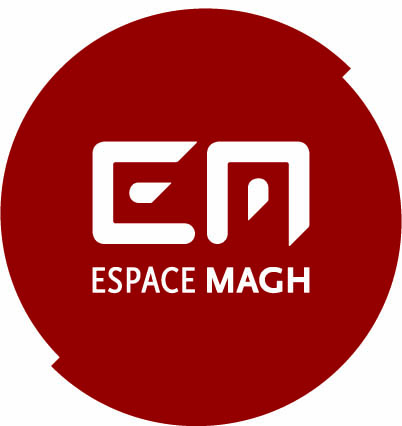Espace Magh Remembers Marolles-Midi October 8, 2011 at 17 h 30
Espace Magh and its new director Najib Ghallale have invited Philippe Mesnard, Marta Marín-Dòmine et Daniel Weyssow to present the Auschwitz Foundation’s project on the past history of the Marolles-Midi quarter at a private view of the exhibition L’Espace Magh à l’épreuve du temps.
During the first half of last century the district near the Gare du Midi progressively came to constitute a Jewish quarter. Today, though, it is very difficult if not impossible to realize this when walking through the quarter, as so few traces of the Jewish presence have survived. So how can this part of the quarter’s history be resurrected? And how to evoke the scale of the exceptional disaster which befell the community that had sought refuge there? A good number of Jews forced to flee from Germany and then the Eastern European countries occupied by the Nazis imagined they would find refuge in Brussels, particularly in the Marolles, which has always been able to offer the most underprivileged a haven.
For example, the building which now houses Espace Magh played a leading part in this story. It was then the Café des Tramwaymen and already housed exhibitions and a theater. It was also often used for meetings because it belonged to the Tramwaymen’s trade union. Most of its customers were Communists, so it is not surprising that in the hostile pre-war climate it was raided by the police on May 22, 1938. The raid was organized by State Security personnel who checked the identities of the hundred or so people in the café. Most of them turned out to be Jews from Central Europe, and a quarter of them were taken into custody. But were they imprisoned or expelled from the country? The question is worth asking because although the Jewish manhunt had spread to Belgium, the Jews caught up in it could nevertheless count on people who were determined to help and protect them.
So the Auschwitz Foundation’s project aims to identify the sites marked by that period of history, and to carry out initiatives in the quarter to resurrect the memory of those days and their struggles. With those who would like to aid us in conducting this research, we will try to discover the important or ordinary events making up the quarter’s history and memory.
As part of the presentation, a draft documentary composed of excerpts from audiovisual testimony by the quarter’s Jewish survivors and its hidden children will be shown.
Espace Magh, rue du poinçon, 17, 1000 Brussels
Exhibition “L’Espace Magh à l’épreuve du temps” [Espace Magh through the years]

Announcement published on the site www.espacemagh.be
The site’s past is revealed through a multi-subject, multimedia exhibition offering an artistic and historical retrospective.
Our researches in the City of Brussels archives have brought to light the different lives and transformations of the building which today houses Espace Magh, a surprising journey often associated with culture and revolution.
This exhibition also gives an opportunity to display Espace Magh’s collections and highlight the most outstanding works of the last two years, from the magnificent work by Djamel Oulkadi, artist in residence in 2010, to the portraits in “My mother and me” by David Ameye which resulted from a workshop conducted with fifth-form children from School N° 14 at Schaerbeek.
You can also rediscover Rachid Mendjeli’s photographs, the three-dimensional patchwork created in our textile workshop with Kathrin Laurent in collaboration with l’ASBL Infor femmes, or the video productions by Milena Bochet and the École de la Marolle.
This exhibition will also feature encounters:
- On October 8 at 17 h 30 we will have the pleasure of welcoming a team from the Auschwitz Foundation / Remembrance of Auschwitz who are carrying out research into the history of the quarter. They will unveil a little-known part of that history.
- At 18 h 30 we will welcome Jacques Alessandra, author of “La fierté d’être homme” [Proud to be a man], a monograph on Abdellatif Laâbi published by Éditions Espace Magh which is the fruit of a week in March 2009 devoted to the work of the poet and his wife.
The exhibition will be open from September 22 to October 28. The private view will take place on October 8 from 17 h 00.
For further information: Projects Focusing on the “Marolles-Midi” District of Brussels
For information: Remembrance of Auschwitz – Daniel Weyssow
Tel.: +32 (0)2 512 79 98 – Fax: +32 (0)2 512 58 84 – Contact by email